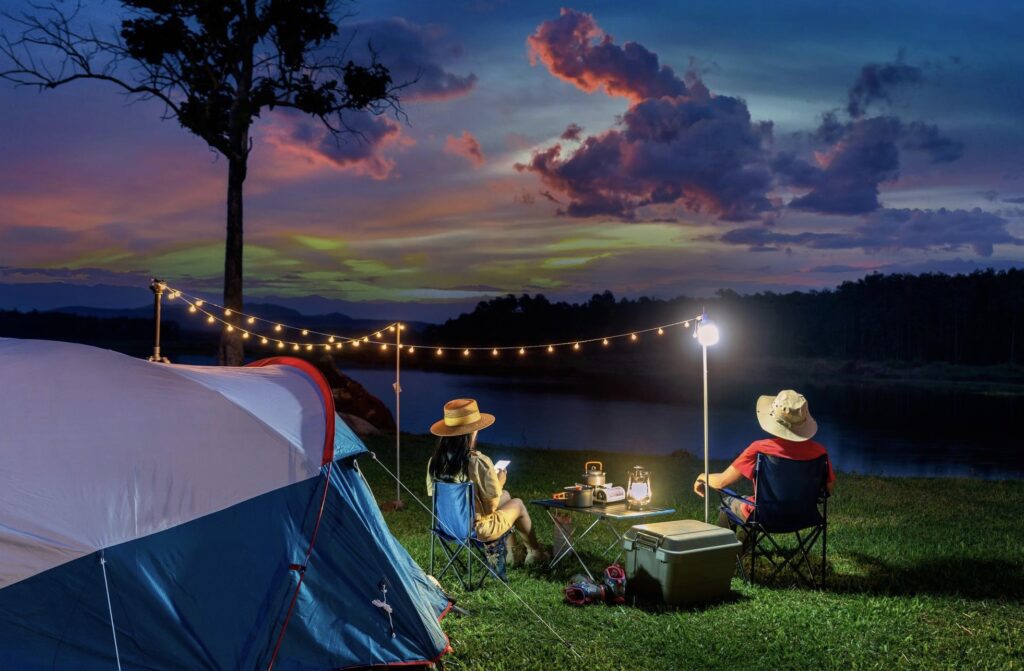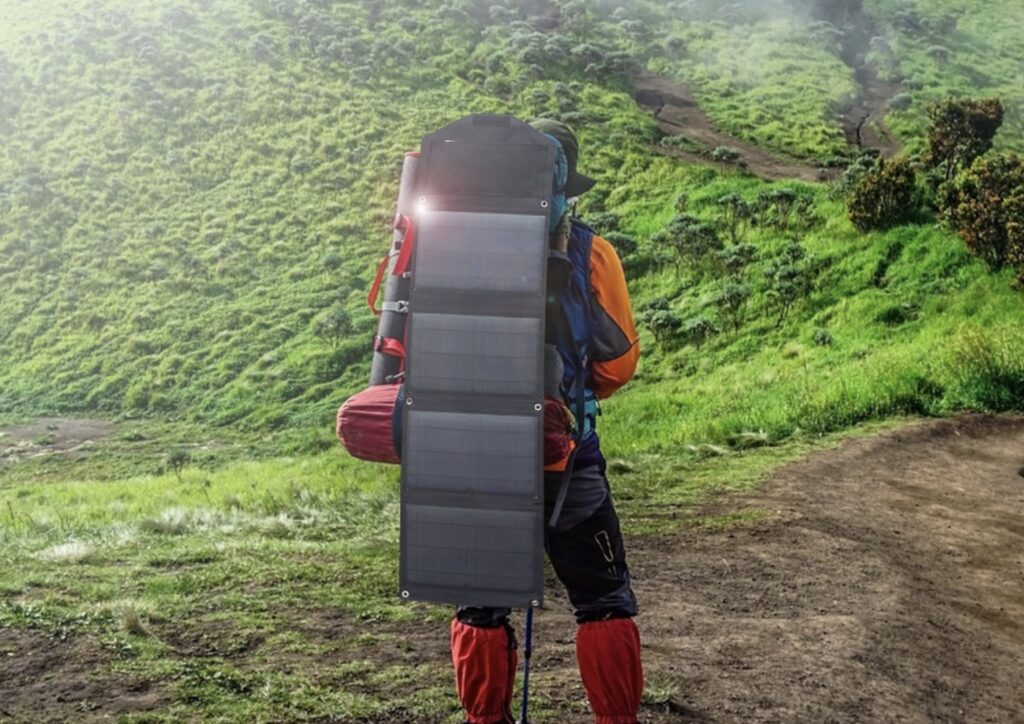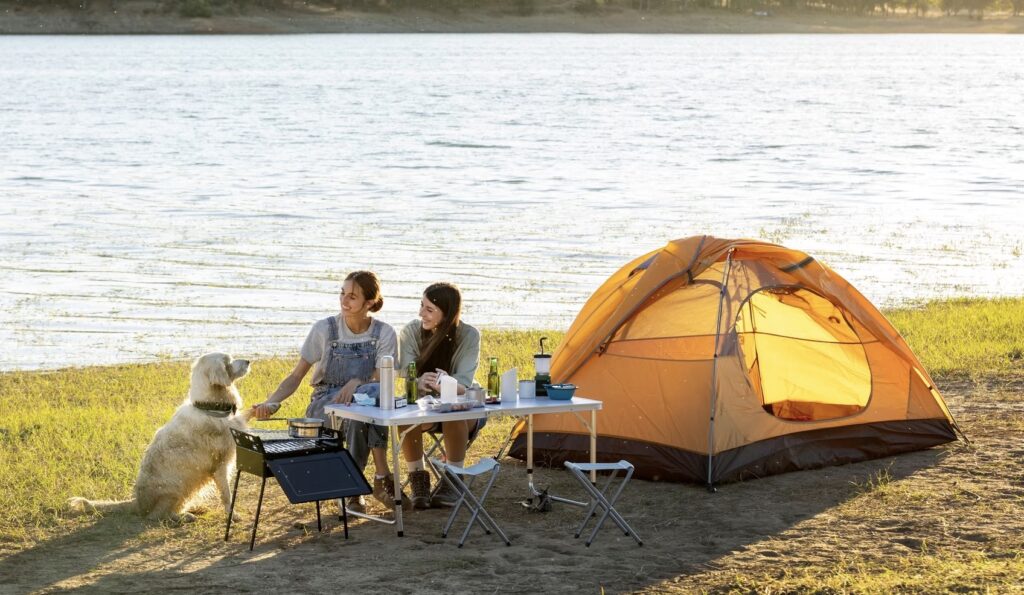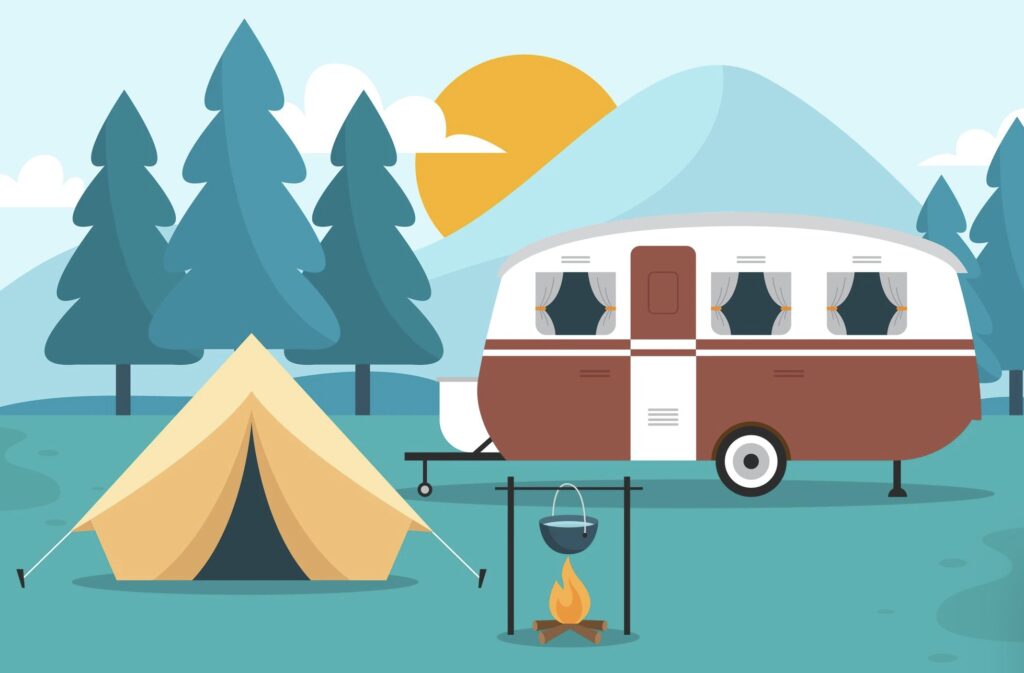Camping is a real break from everyday life, rest, relaxation, and a life surrounded by nature. Most appreciate the simplicity of camping, as it is the ideal alternative to hectic everyday life and the demand for perfection that prevails today.
It doesn’t matter whether you are traveling with a ground tent, a camping trailer, a rooftop tent, or even an RV. Camping offers you a lot of freedom.
Nevertheless, there are a few things that you don’t want to do without, for example, a refrigerator, coffee machine, or even your smartphone. On well-equipped campsites, it is not a problem to supply your devices with the necessary energy. But that is not the case everywhere.
Fortunately, there are alternatives that you can use to operate your devices even without electricity from the socket. Camping without electricity or without a connection to the general power grid makes you more independent and is also more environmentally friendly. Helpful tips for camping without electricity follow.
Table of Contents
The biggest energy guzzlers when camping
In today’s world, we obviously use a variety of electronic devices, which means that we’re pretty much at a loss when camping without electricity. While not all of our electronic devices need to be used when camping, there are a few that are difficult to live without. That would be, for example, the refrigerator to keep food fresh. The smartphone also has to be charged or maybe you need the hair dryer after the shower.

Even if you decide to do a digital detox while on vacation, you will need to prepare some food that requires heat and, of course, a way to cool the food.
The following devices can be found in almost every camper and require a power supply:
- Various types of lighting
- Refrigerator
- Coffee machine
- Kettle
- Toaster
- Navigation device
- Smartphone
- Laptop
- and much more…
On larger campsites, there is usually a power connection with which you can supply electricity via extension cables and distribution sockets. With a free-standing mobile home or when camping in the open countryside, this is a bit more difficult.
Is camping without electricity even feasible? Yes, because there are alternatives to the socket. This is possible with solar energy, gas, or a 12-volt car battery. It is generally advisable not to rely on just one source of energy. After all, power outages can always happen. Below we go into more detail about the three ways to camp without electricity.
Solar energy for camping – use the power of the sun
If you not only want to distance yourself from the power grid, but also from fossil fuels for environmental reasons, solar energy is a good choice. For example, you can mount the photovoltaic systems for the camper on the roof of your mobile home.

Here, the sunlight is converted into direct current, which charges the onboard battery or a power bank. It is then possible to supply all devices with power without having to use an external power source. Charge controllers guarantee that the starter and onboard batteries are optimally charged. If the electricity is not used, it is ensured that it does not flow back to the solar modules.
Camping without electricity is possible with mobile solar modules, which are not permanently installed on the roof but can be placed on the spot. This is practical in that the modules can move with the sun and are ideal for camping without electricity due to their mobile handling. Since part of the solar energy can be stored temporarily, you are to a certain extent independent of the weather. However, if you are planning a holiday in a country with little sun, you should not use solar energy alone to camp without electricity.
Use the 12-volt car battery as a power source
Everyone knows the cigarette lighter in the car and hardly anyone actually uses it to light cigarettes. Rather, it is used for charging electronic devices via USB cables. You can also use this trick very well for camping. All electronic devices that you charge via a USB cable can be powered by the integrated 12-volt car battery.
This is interesting for example:
- Smartphones
- Tablets
- eBooks readers
- Laptops/notebooks (with additional voltage converter)
- Navigation systems
- Thermoelectric coolers (12-volt connection)
- Coffee machines and other household appliances
With the car battery, you can supply yourself with energy. A refrigerator without electricity when camping cannot be implemented as a result, but cool boxes can be connected. Anyone who practices camping without electricity must of course be sure that the alternative energy sources work properly. It is therefore advisable to check the car battery before starting the tour and have a new one installed if necessary.
Use gas for a self-sufficient energy supply
Gas bottles are suitable for operating kitchen appliances and the like, and can also be used freestanding. However, it is important that the gas cylinders are safely stored in the camper or vehicle so that they cannot slide back and forth or tip over while driving.

>> Here you will find camping equipment for a cheap price <<
This also means that the valves must be covered with protective caps and the bottles are not stored in the living area but in a separate place. In addition, the storage area must be well-ventilated. Gas lamps are also practical for camping without electricity, they also create a really atmospheric light, which is guaranteed to get you in the mood for camping.
The camping stove with gas has also proven itself for many, especially for camping without electricity, to be able to quickly prepare a coffee or something warm to eat.
Camping without electricity tips and other tricks
In order for you to be able to provide yourself with the best possible, self-sufficient energy and for camping to really work without electricity, it is advisable to combine several energy sources and not just rely on one. For example, you can heat your food with a gas cooker, charge your mobile phone with a car battery and generate additional energy with a solar module. It is also advisable to think about which devices you really need for camping beforehand because saving energy is always advisable.

My tip is to use energy-saving LED lamps, which are standard these days anyway. Also, always have an emergency kit with you consisting of flashlights, power banks, and cookware to keep over a campfire in case you ever need to go without gas and electricity.
Batteries and power banks should of course be charged before you travel so that you are ready when you want to charge your devices. If you stop at campsites in between, they can be supplied with electricity again there, but this form of energy generation is less suitable for long stays in nature. Camping without electricity with groceries is a challenge, but gas can also help here, for example with gas-powered absorber refrigerators.







